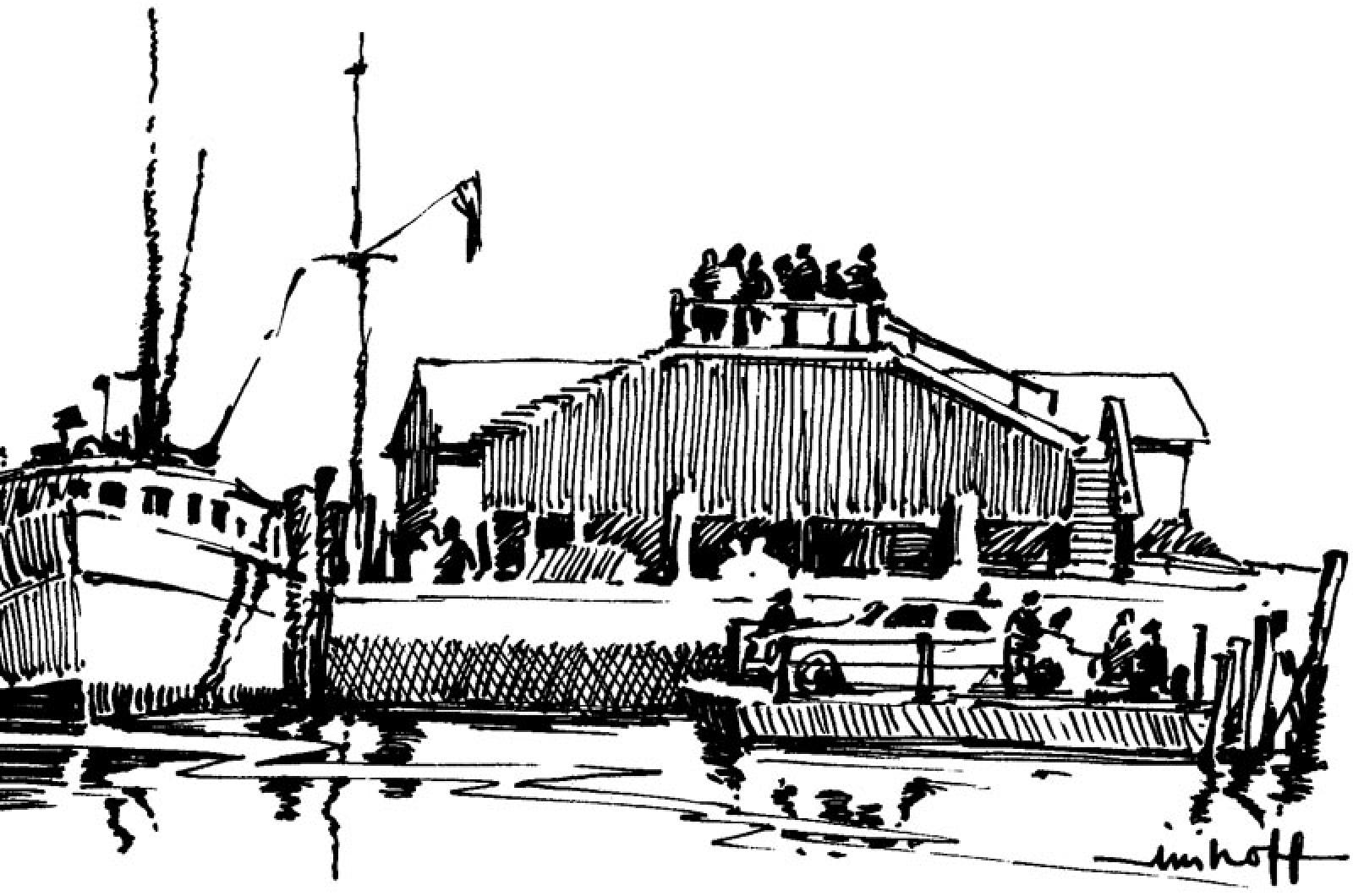Martha’s Vineyard Commission meetings are open to the public, but it does take a certain fortitude to listen for hours as commissioners consider, sometimes in painstaking detail, the benefits and detriments of proposed projects, as is required by the MVC’s enabling legislation.
But an hour and a half into last week’s meeting, commissioners took a step back to talk about what some might call the elephant in the room, that is, the challenge of weighing projects on a case-by-case basis — knowing that their cumulative effect may be dire.
The discussion came just before the MVC voted — with surprising unanimity — to approve expansion of the airport business park, adding four new lots for light industrial tenants. Airport director Geoffrey Freeman said there was pent-up demand from Island businesses for new leases, and commissioner Trip Barnes noted that the airport park is one of the last places on the Island where commercial expansion is possible.
Then commissioner Ben Robinson spoke up.
“I think we just have to recognize what we’re doing here,” he said. “I’m going to vote for this because of the need today for these services to be provided on the Island . . . but we need to recognize the impact of a continual march forward on ‘yup, services are needed, let’s just keep opening up new land for it.’ Because land is going to run out.”
And it’s not just land that is finite. Though the airport leases are not likely to go to heavy water users, the Island’s supply of groundwater from its single-source aquifer is not inexhaustible. Energy use is an issue. Wastewater plants are at or near capacity, and the degradation of the Great Ponds is now clearly linked to the Island’s increasing population.
There has long been tension between those whose priority is protecting the Island’s natural resources and those whose livelihood depends on continuing development, but the limits of growth on a small Island have never seemed so near.
MVC commissioners are clearly well aware of this dilemma. Commissioner Linda Sibley, the body’s longest-serving member, said the responsibility of the commission — as set forth in the law that created it — is to prioritize projects that overall are a benefit to the Vineyard, adding that putting conditions on projects is one way the MVC addresses its concerns.
But it’s not at all clear that the public understands that is what the commission is trying to do.
Suggesting that there is a perception among some Islanders that the commission wants to shut down all development, commissioner Josh Goldstein said: “If this board is going to say that all development is a detriment, we need to come out to the general public and let them know that the bar has risen.”
He makes a fair point.
By unanimously approving the airport park expansion, the commission affirmed that it is not against all development.
But the bar for development on Martha’s Vineyard by necessity must rise, and the Martha’s Vineyard Commission is the one body on the Island with the power and position to make that abundantly clear.
As projects continue to come before the planning agency, the MVC needs to continue to do its careful examination of each one’s benefits and detriments. But there’s also a crying need to put these decisions in the broader context of diminishing Island resources. Doing so halfway through a two-and-a-half-hour meeting will not get the attention this issue deserves.







Comments (1)
Comments
Comment policy »